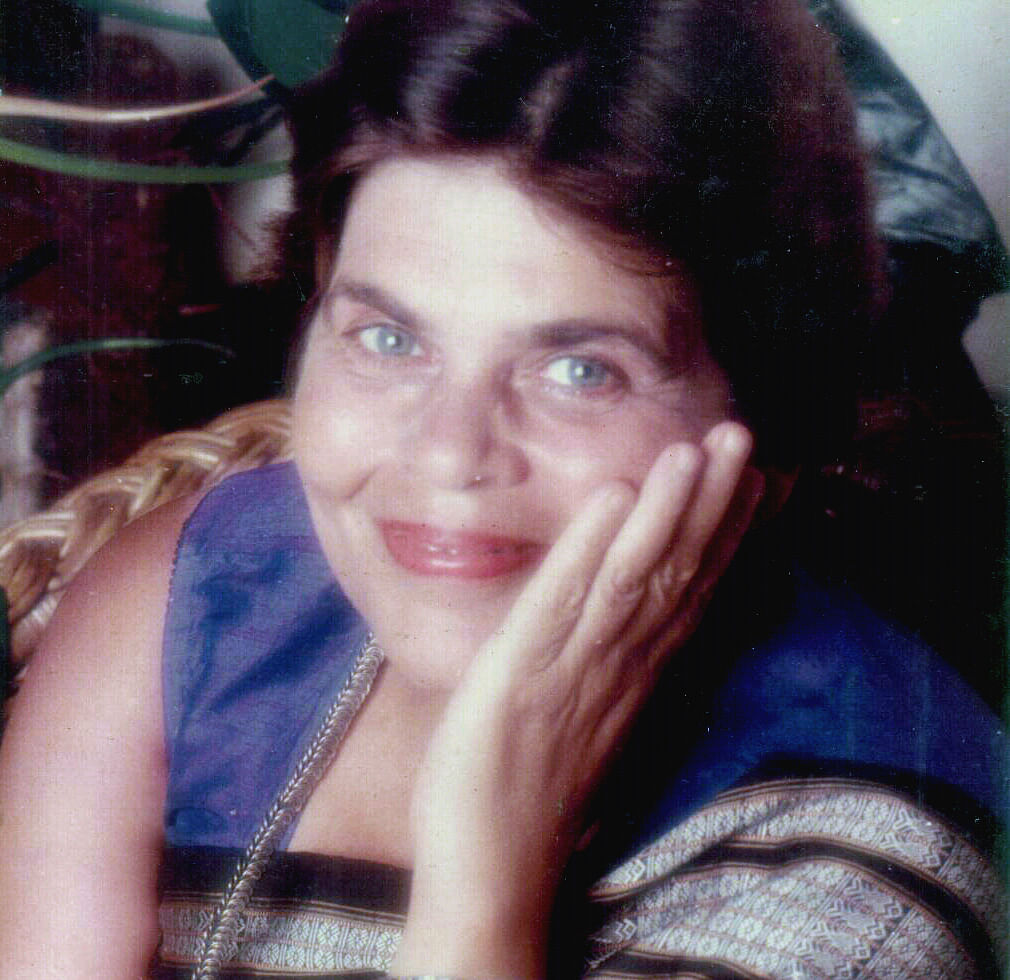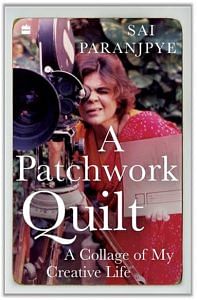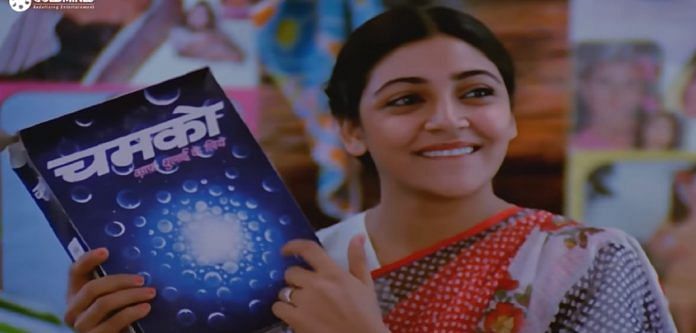Gul Anand, a noted film distributor, was a true filmwallah. He knew the heartbeat of his audience. ‘The script is super,’ he said enthusiastically. ‘But…’ I was to encounter Gul’s ‘buts’ quite often during the making of Chashme Buddoor. The current tale as it leapt from the pages was exclusively for the young, he pointed out. For college students. ‘We do not want only the teen brigade. Their mums, dads, uncles, aunts and even grandparents have to see the film.’
So subsequently, older characters were added to the story. The heroine’s father, brother, granny and a delightful paanwallah from the boys’ mohalla became the extended ensemble. All these postscript characters undoubtedly lent their personal charm and left their imprint on the film. But I did grumble a lot while accommodating Gul’s ‘buts’. ‘You make me feel like a grocer,’ I would crib, ‘not a film writer.’ But the changes incorporated truly worked and proved that Gul knew what he was talking about.
In Sparsh, the entire agreement was carried out orally. Everything was by word of mouth, with the result that I was not paid a single rupee for my work. Gul, being a proper businessman, drew up a regular contract and paid the instalments indicated therein promptly, without fail. The fact that my remuneration was ridiculously small is another matter. I was a ‘babe in the woods’ where business matters were concerned and cannot blame the shrewd acumen of my producers. Suffice it to say that Gul made a Himalayan heap after the film’s release, while I pocketed a molehill of loose change in comparison. Once, while we were chatting, Gul boasted about a coup he had pulled off. He had paid Rs 1 lakh for just the basic idea of some foreign film. I was incensed. ‘You have paid 1 lakh just for some film idea, while for a detailed script I have slogged over, you are just paying me in thousands,’ I exploded.
Gul was taken aback by this sudden eruption, but he laughed sportingly and said, ‘Hey, you are getting smart. You really tripped me up,’ and raised my fee considerably. I recount this incident as perhaps the solitary example of my ‘astute’ bargaining skills. ‘If our film does well,’ he added, ‘I will give you a bonus amount.’ He kept his word.
Also read: Chashme Buddoor, aka Saeed Jaffrey, and the art of making a small role fill the screen
The cast and technicians for the film were selected with great foresight and skill. Farooq Shaikh and Deepti Naval were both yet to become stars and were anxious to work under a respected banner with a talented(!) director. The same went for Saeed Jaffrey. This versatile London-based actor had made a name in West End plays and BBC telefilms. He now wanted to test the waters in Bollywood and was looking for a suitable break. Gul nabbed all three in his net and got them on the wagon for a pittance. My friend Ravi Baswani was an extremely gifted actor with an extraordinary feel for comedy. Gul took him on, on my say-so, for the princely fee of Rs 3,000. This was a ridiculous amount even for those days. It has always been the film industry’s custom to exploit starstruck newcomers by giving them a much-coveted ‘break’ and then getting them to work for pennies, or better still, for free. So Ravi was cast as Jo Jo, one of the trio. For the third roomie, Gul recommended Rakesh Bedi, a recent FTII graduate. I saw some footage of his class exercises, and he was selected.
Leela Mishra was the only actor to be paid her regular fees for taking on the role of Deepti’s loveable granny. I refused to settle for anybody else. Leelaji was strict about her payment. Once, a delegation had approached her for doing a role in Satyajit Ray’s Shatranj ke Khilari. ‘Who is this Satyajit Ray?’ she had asked innocently. ‘Will he pay my fee of a thousand rupees per day?’
I decided to shoot this film in Delhi too. This new film would take wing and soar, exploring the length and breadth of the beautiful city and lay bare its soul, providing a comprehensive Dilli darshan to its audience.
Our unit landed in the Capital.
I was keen to locate a typical barsaati – the famed Delhi terrace flat – as the location for the bachelor pad for the three cronies. These barsaatis have an innate charm and provide a secluded magical world of their own. The rent is usually reasonable and, therefore, they are in great demand by students and bachelors. We found an ideal flat in Defence Colony. A roomy hall with a terrace running around it. An additional staircase for quick getaways made it perfect for some of our scenes. The friends laid claim to one wall each; the entrance wall was common. Each wall bore ample proof of the claimant’s preference. Omi’s wall had selected Urdu shayaris splashed across it, while film buff Jo Jo’s wall was plastered with pin-ups of reigning superstars of the silver screen. A nude Hollywood starlet also had pride of place in this galaxy. Sober Siddharth’s wall displayed photos of writers and philosophers. A neat little doll’s house, complete with a garden, was located nearby to serve as Deepti’s house. A tobacco company erected a dinky little paan stall bang on a main road in Nizamuddin. The stall naturally had cigarettes and tobacco of the company’s brand displayed prominently across its walls. The advertising age had started.

Also read: Remembering Ravi Baswani, the theatre maestro and ‘cement’ of Jaane Bhi Do Yaaron
Saeed Jaffery put his heart and soul into the character of the paanwallah. The very day he arrived from London, he insisted on visiting old Delhi.. He must have visited at least fifty-odd owners of paan kiosks. He observed their body language, their mannerisms, their language and its nuances with great attention. He was extremely particular about having a suitable name in the film, to the point of being finicky. Lachhan, Fumman, Gulshan, Jumman, Dadoo, Babban were some names that cropped up, were discussed and rejected. ‘The bell has not tolled as yet,’ he would say. We became despondent and a little exasperated. Then one day he called me, waking me up very early in the morning and said, ‘Aadaab. This is Lallan Mian speaking.’ The bell had finally tolled!
Randhir Kapoor’s comedy Biwi O Biwi was being made under the RK banner at exactly the same time as Chashme Buddoor. So a constant race was on between the two films for dubbing, effects recording and remixing slots.
Biwi O Biwi was completed three days ahead of us and duly went for censor screening. Someone at that screening praised the film as a terrific comedy, to which Randhir is said to have replied, ‘This is nothing compared to Chashme Buddoor. That is a true comedy.’ I learnt of this exchange when I took my film to the censors. This was the very first feedback and stamp of approval claimed by it. It is rare for someone to praise someone else’s work in the film industry, especially behind their back. No wonder that I still cherish Randhir Kapoor’s magnanimous comments.
 This excerpt from Sai Paranjpye’s ‘A Patchwork Quilt: A Collage Of My Creative Life’ has been published with permission from HarperCollins India.
This excerpt from Sai Paranjpye’s ‘A Patchwork Quilt: A Collage Of My Creative Life’ has been published with permission from HarperCollins India.




One of classic movies of those days. We used cherish watching with family. Ravi Vaswani was the best and Vince Nagpal breathed best for Yesudas voice. Farooq and Derpti looked innocent and adorable. And one can never forget Ramesh Bedingfield and Leela Mishra. Saeed Jeffery was so different that you cannot forget him. Move was great.